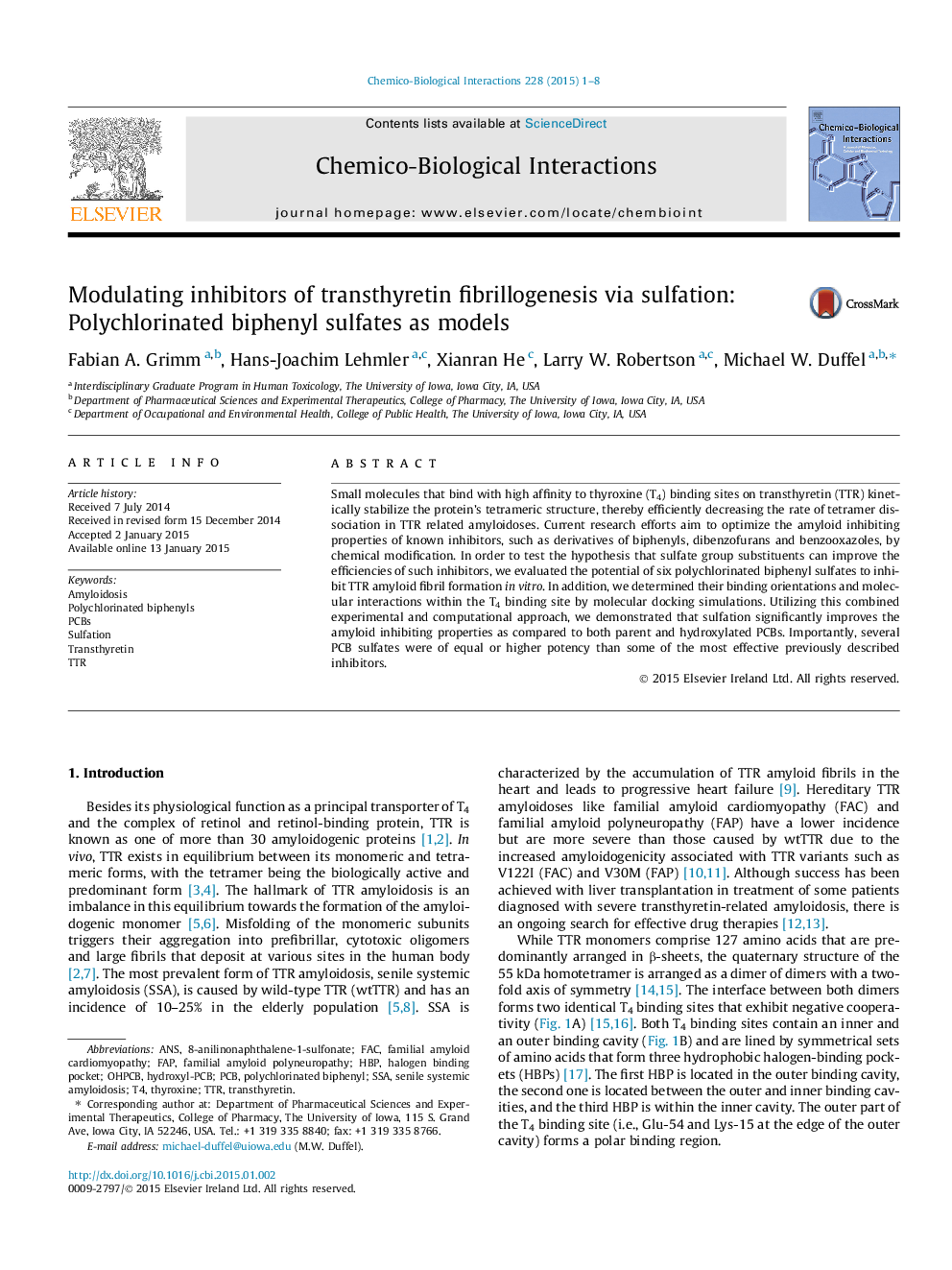| Article ID | Journal | Published Year | Pages | File Type |
|---|---|---|---|---|
| 5847958 | Chemico-Biological Interactions | 2015 | 8 Pages |
â¢PCB sulfates are effective inhibitors of transthyretin amyloid fibril formation in vitro.â¢Sulfate groups represent chemical tools to improve amyloid inhibiting properties.â¢Docking studies provide a structural explanation for amyloid inhibiting properties.
Small molecules that bind with high affinity to thyroxine (T4) binding sites on transthyretin (TTR) kinetically stabilize the protein's tetrameric structure, thereby efficiently decreasing the rate of tetramer dissociation in TTR related amyloidoses. Current research efforts aim to optimize the amyloid inhibiting properties of known inhibitors, such as derivatives of biphenyls, dibenzofurans and benzooxazoles, by chemical modification. In order to test the hypothesis that sulfate group substituents can improve the efficiencies of such inhibitors, we evaluated the potential of six polychlorinated biphenyl sulfates to inhibit TTR amyloid fibril formation in vitro. In addition, we determined their binding orientations and molecular interactions within the T4 binding site by molecular docking simulations. Utilizing this combined experimental and computational approach, we demonstrated that sulfation significantly improves the amyloid inhibiting properties as compared to both parent and hydroxylated PCBs. Importantly, several PCB sulfates were of equal or higher potency than some of the most effective previously described inhibitors.
